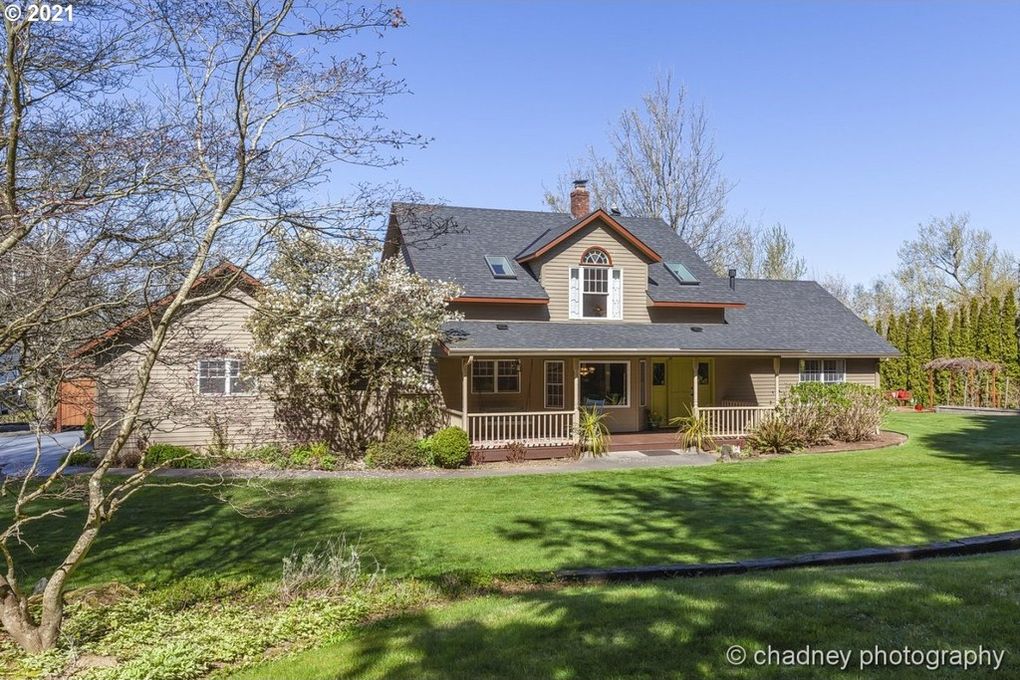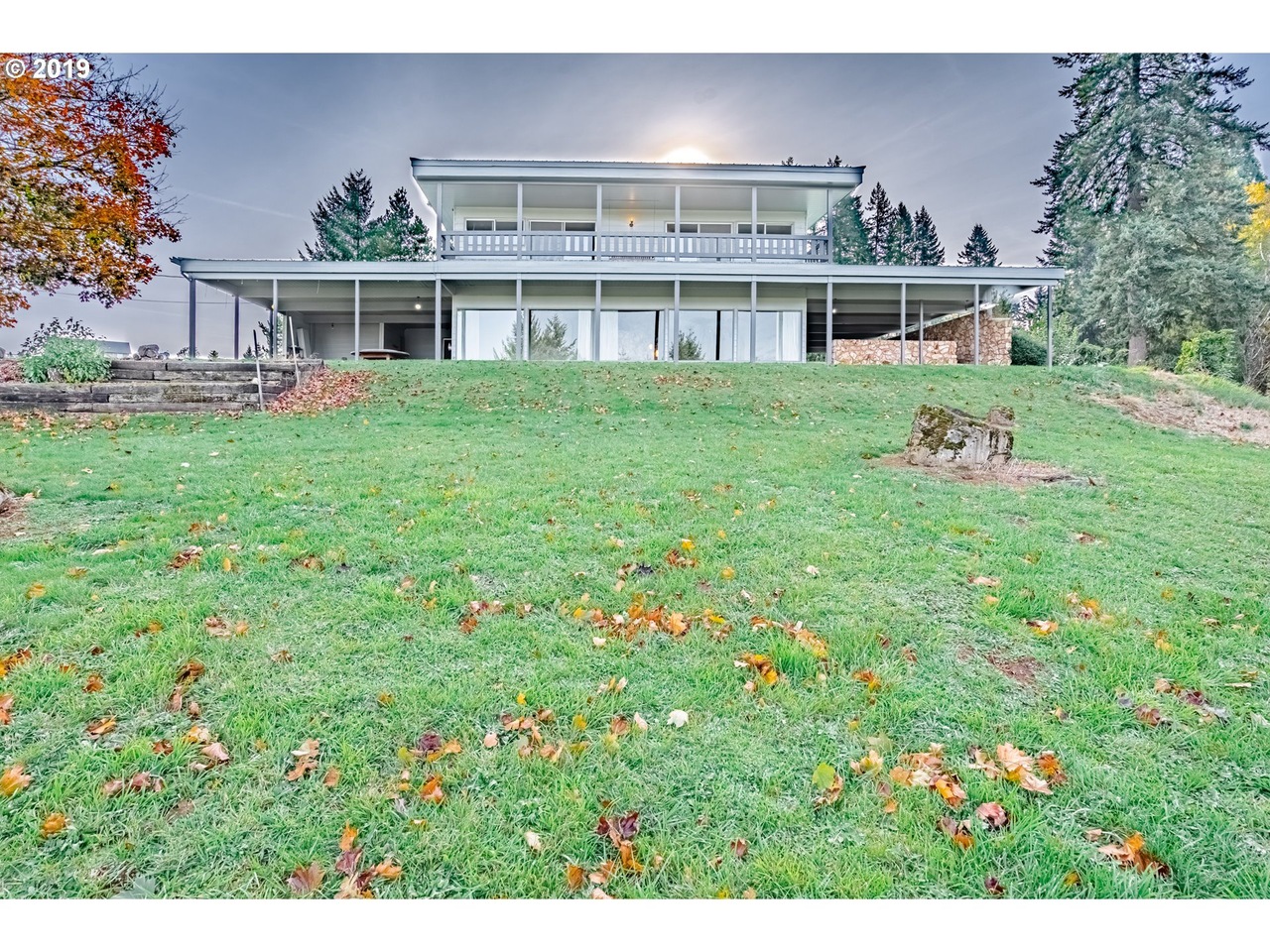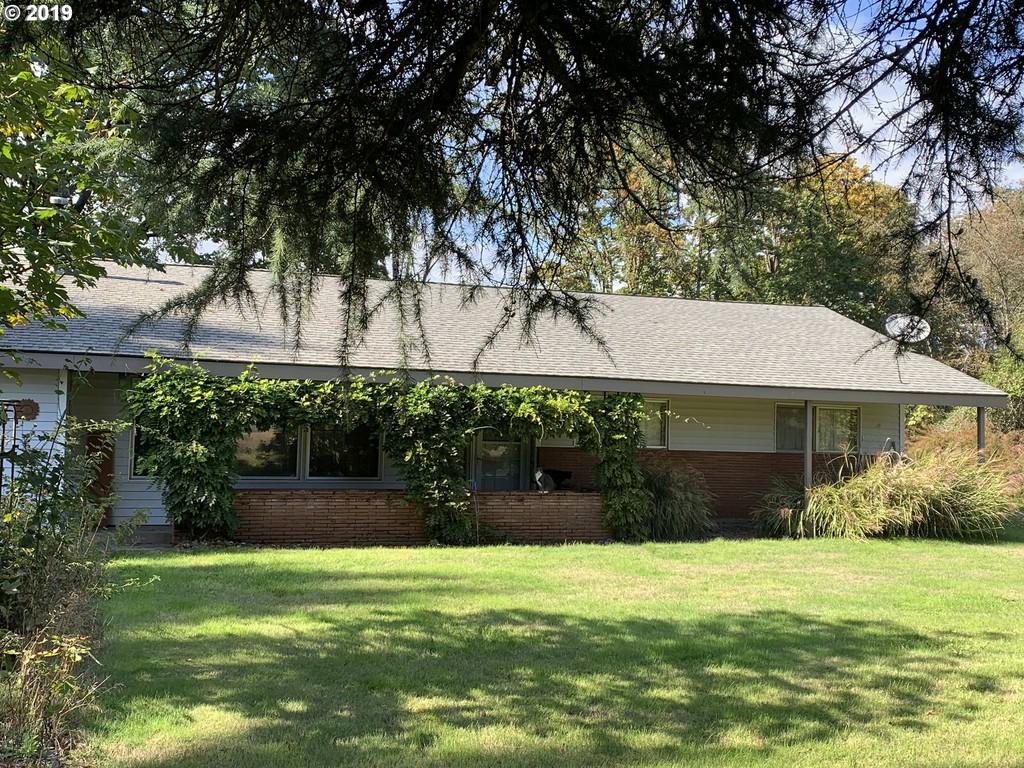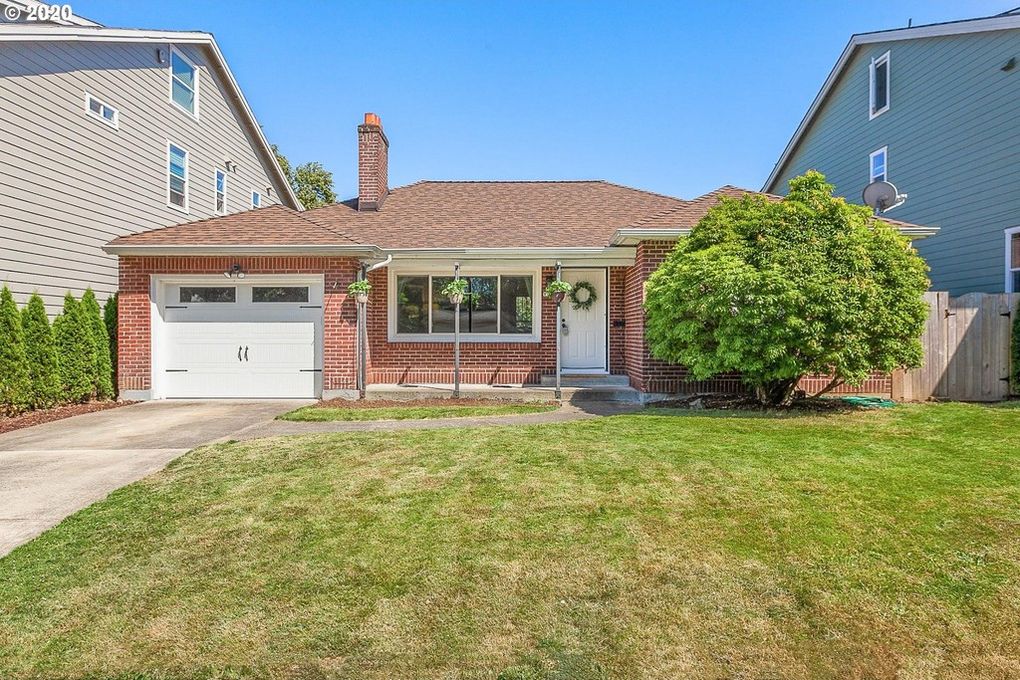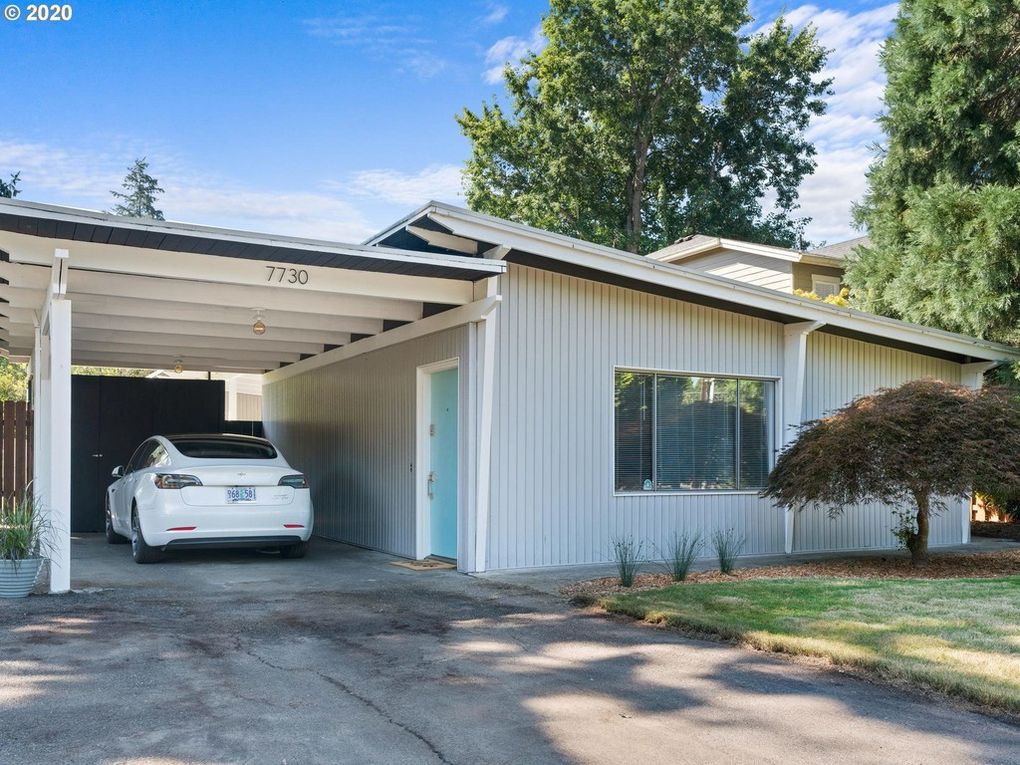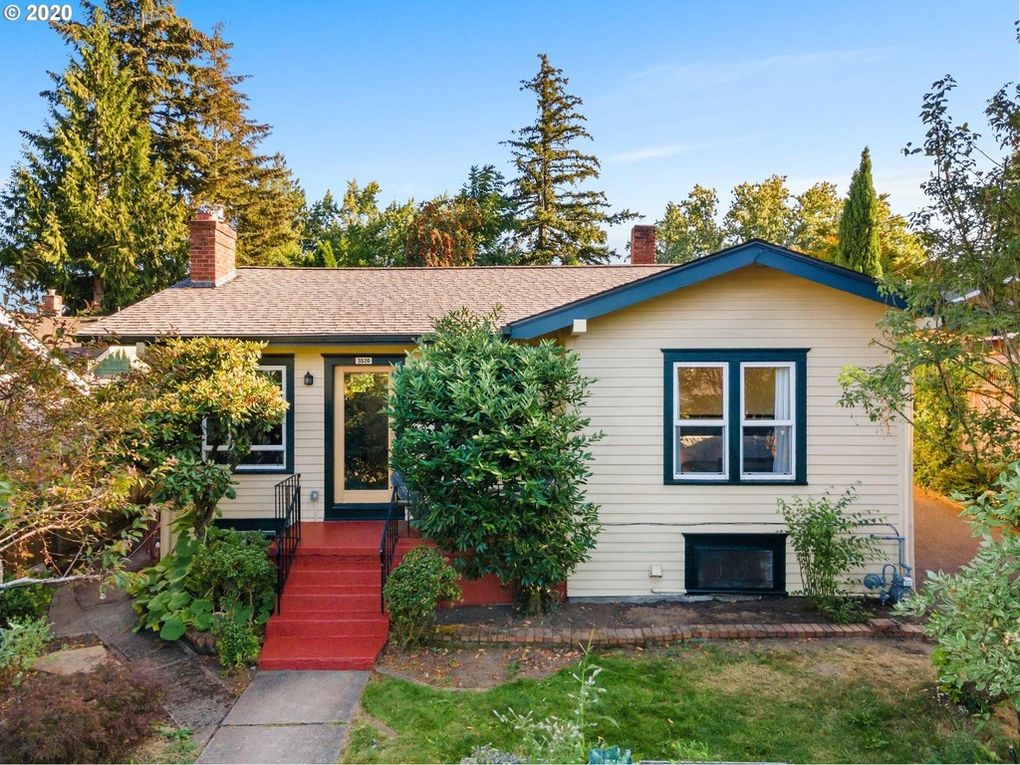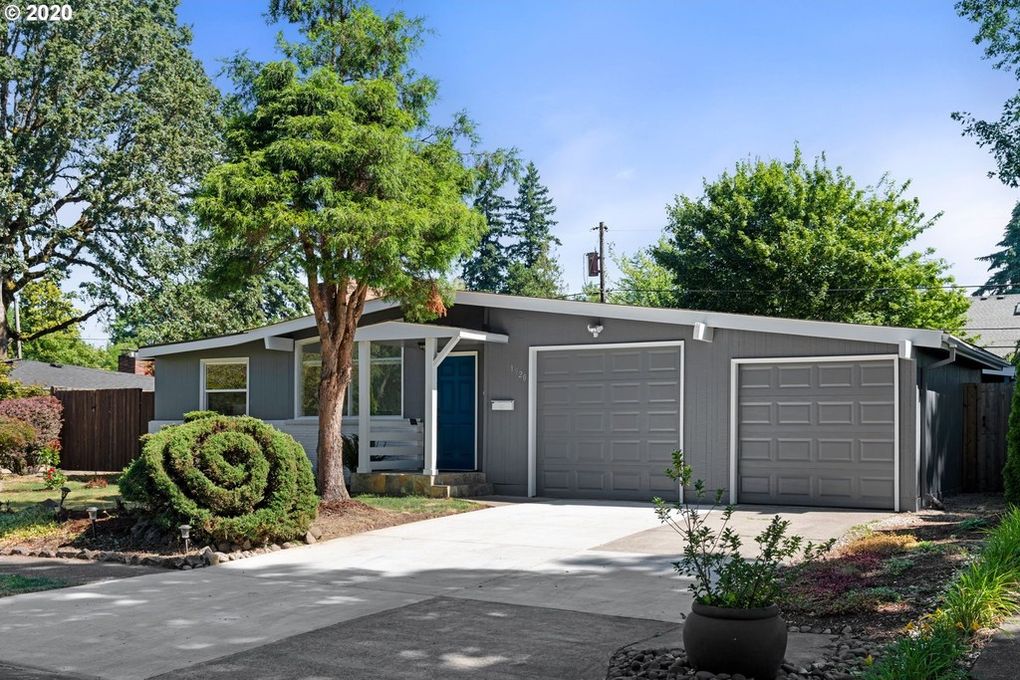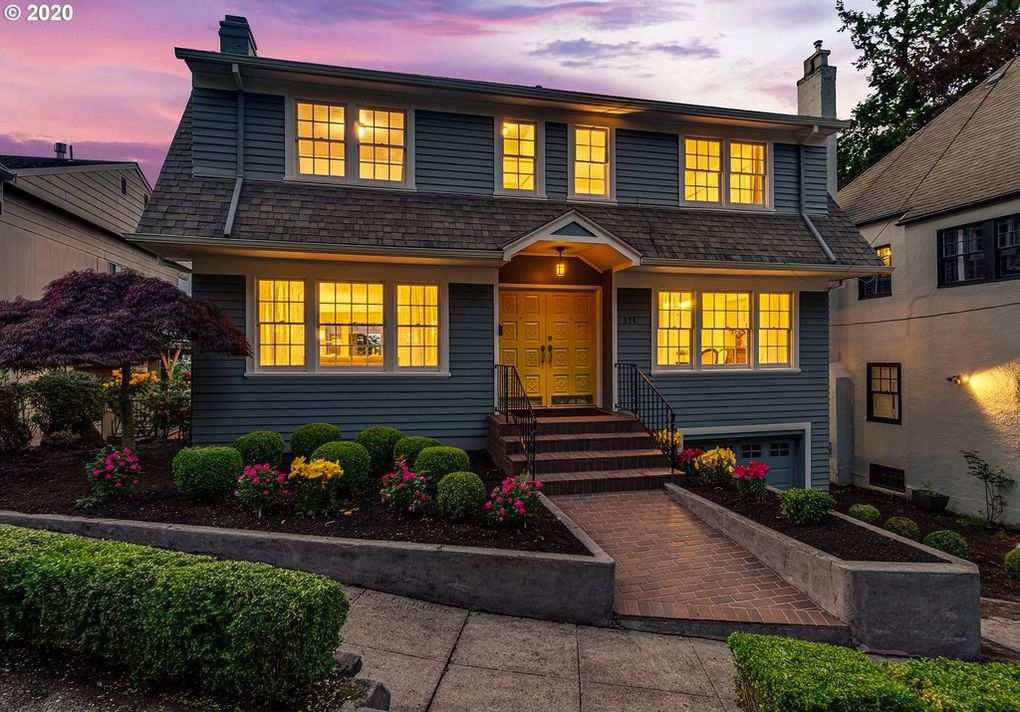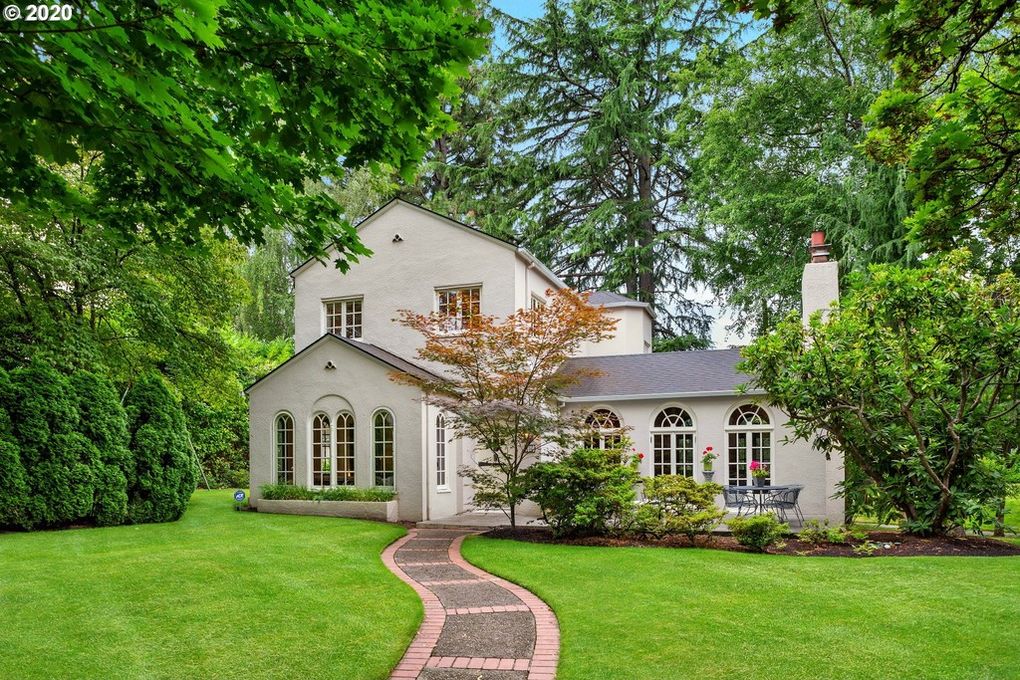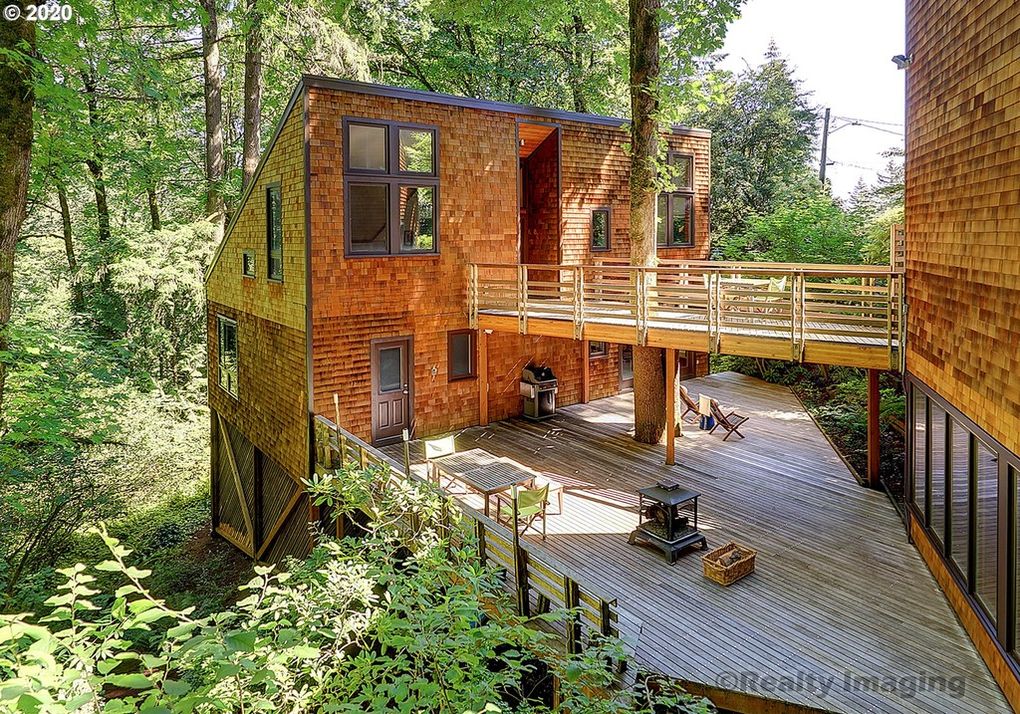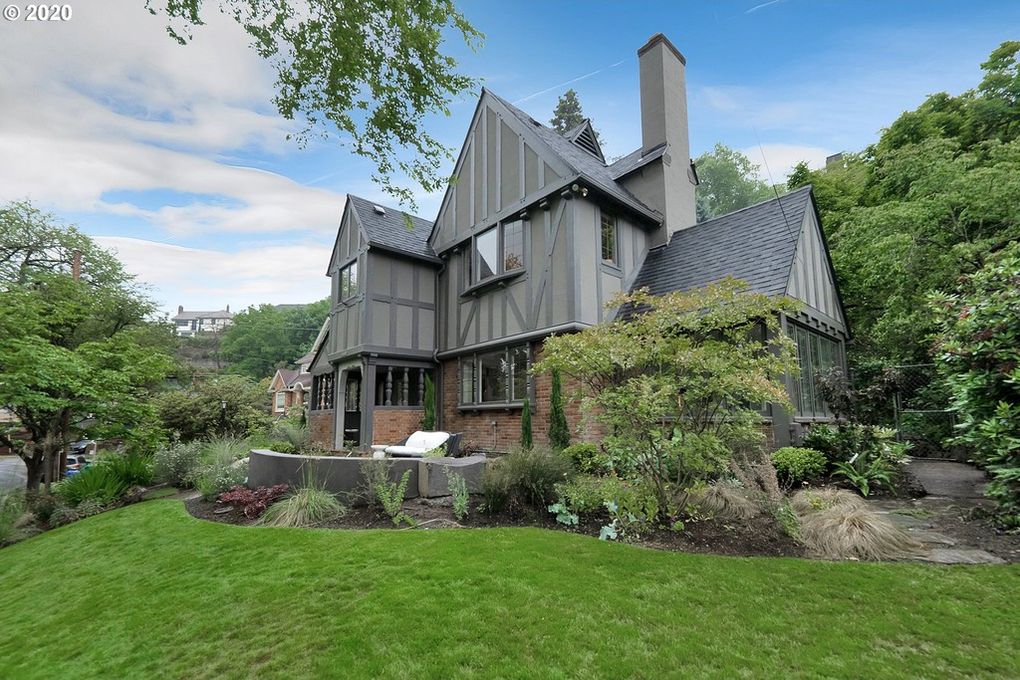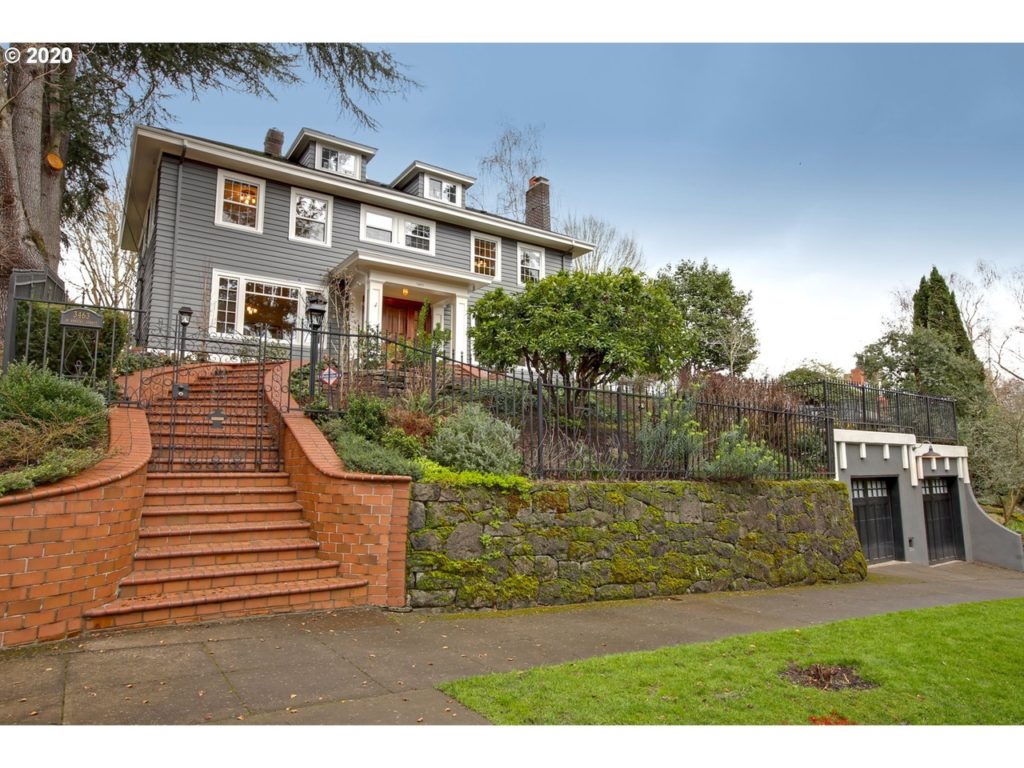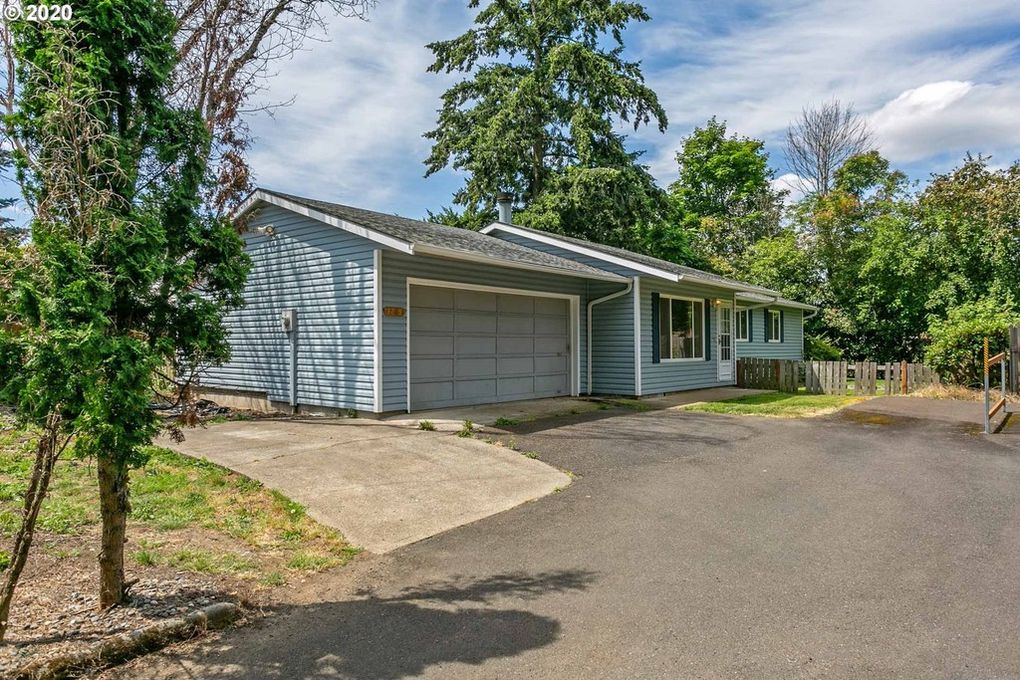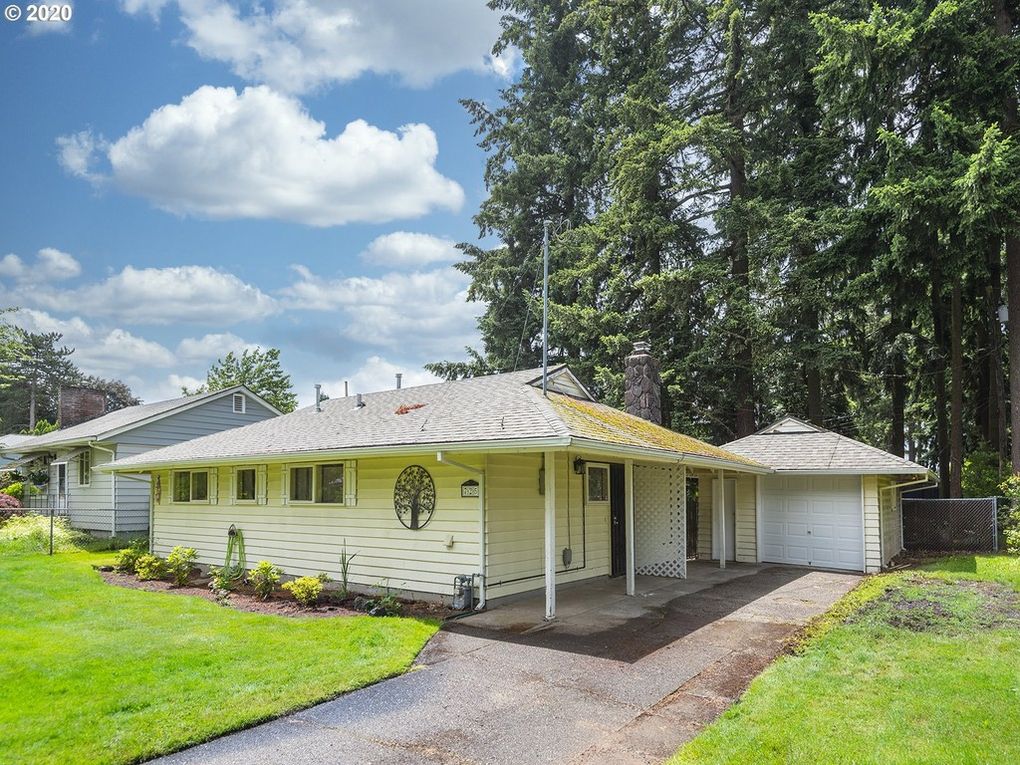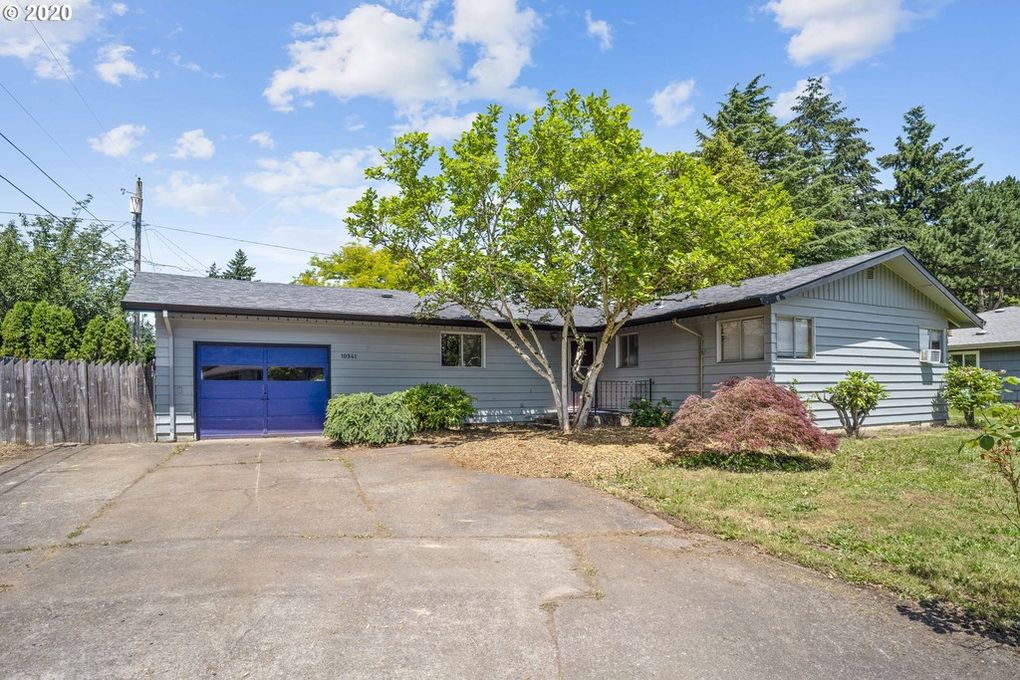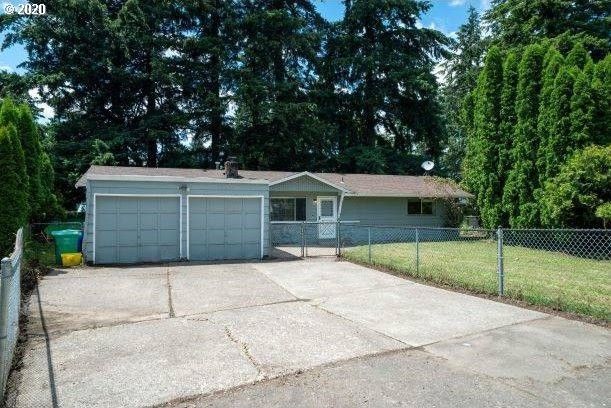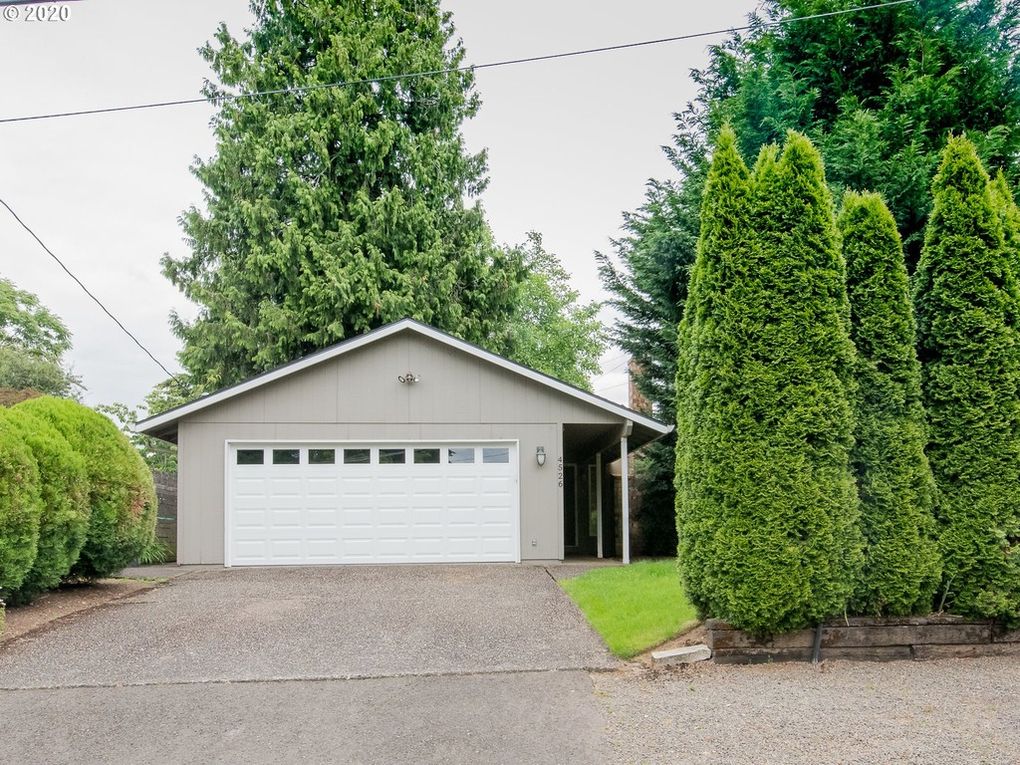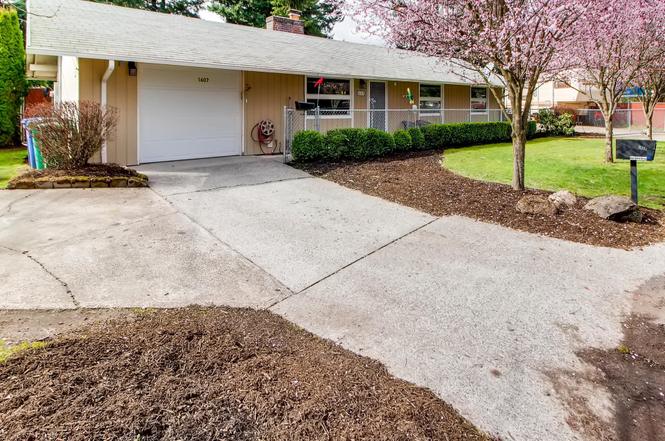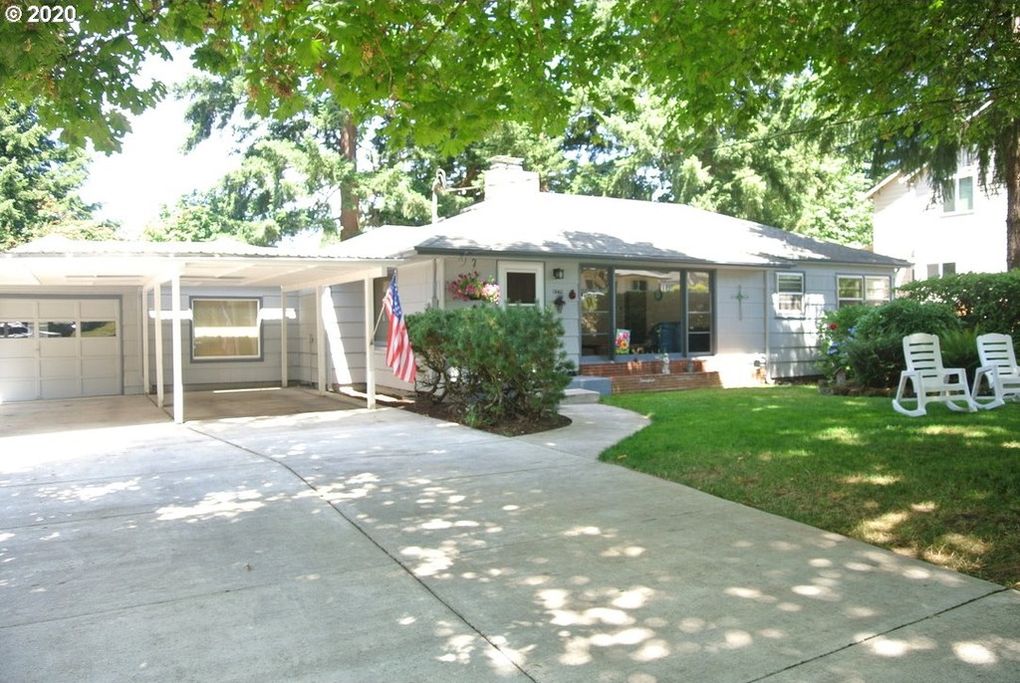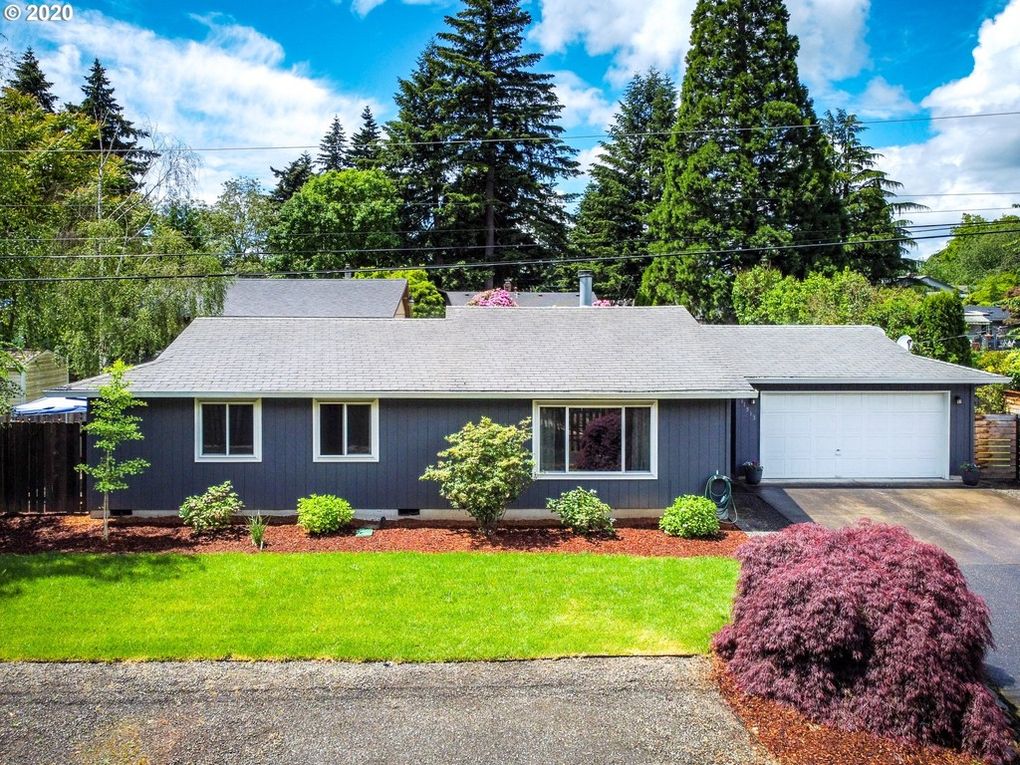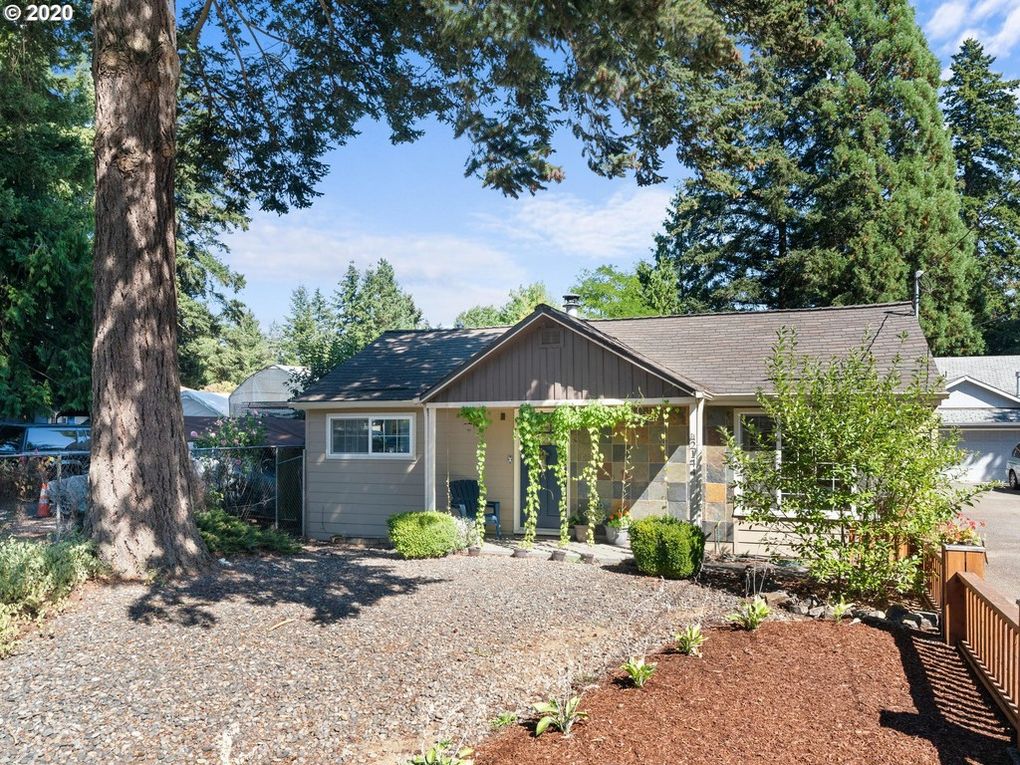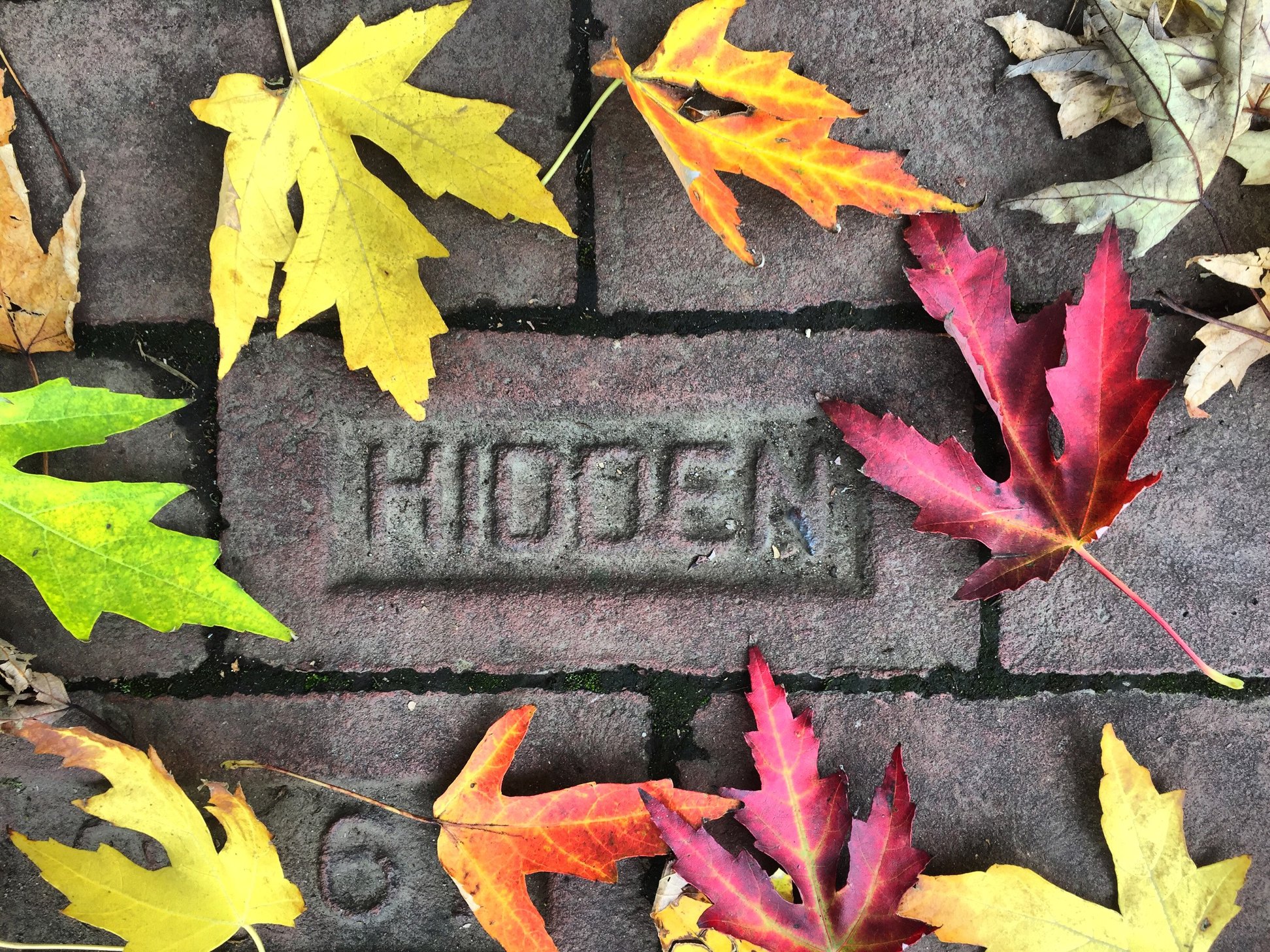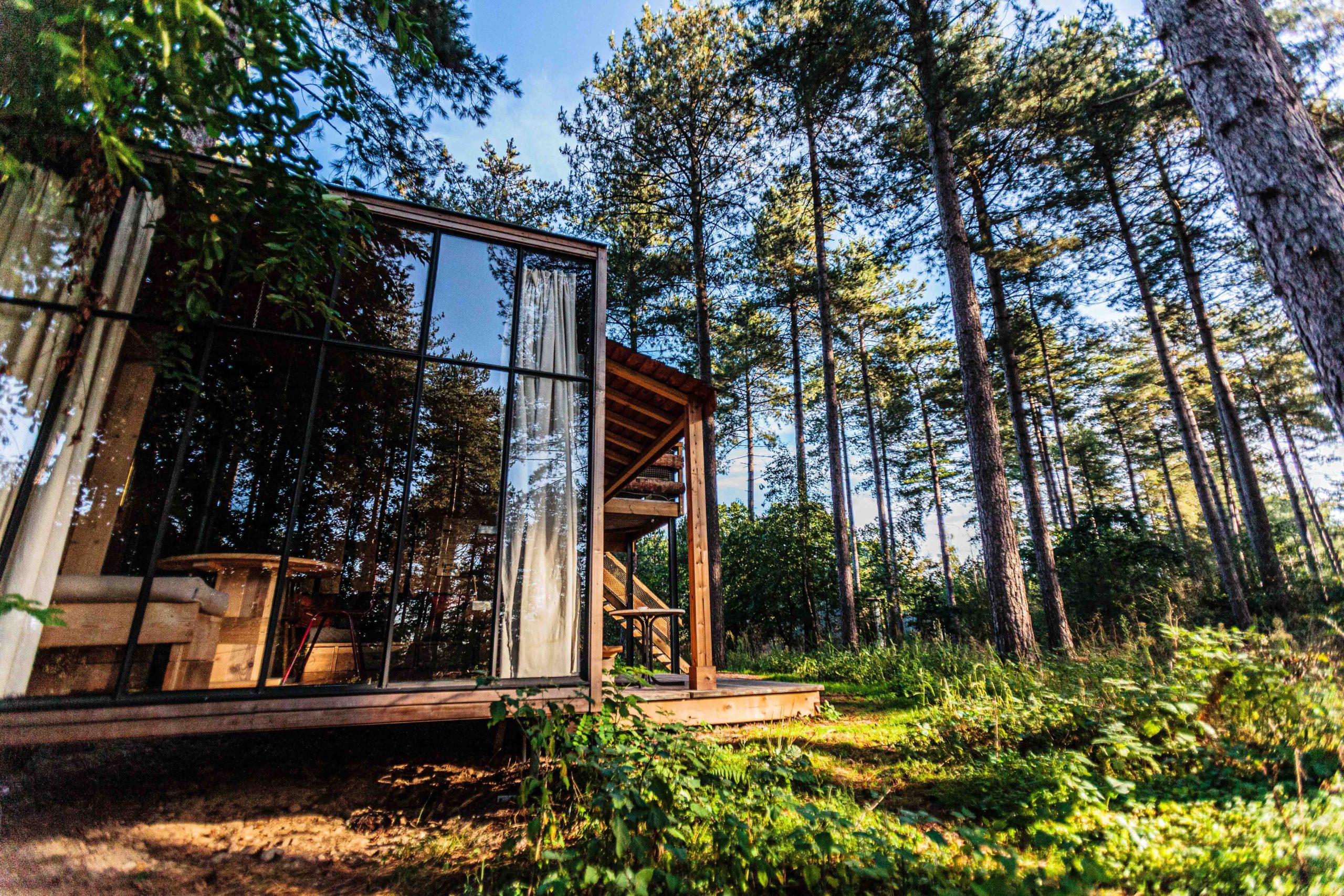
Where to Buy a House in the Portland Suburbs When You Want Land
Right now in the Portland area (and really in most cities) we’re seeing a major trend of people wanting a home with more space both inside and out. Of course, this is largely due to the pandemic and staying home so often. If you need to stay close to Portland but you want to find a home with more space, you’ll likely need to move out of the city and live in one of Portland’s suburbs.
Portland Real Estate Agent Lauren Goché has been hearing this from clients pretty much weekly since the pandemic began: People are moving to Portland but don’t want to be IN Portland. They want to be within a 45-minute commute to Portland. They also want to have 1-2 acres with maybe a cabin, and/or the possibility for multi-generational living. (In addition to the conditions the COVID-19 pandemic has created, Boomers are aging and many Gen Xers are wanting to house their aging parents.)
If you want more land in the Portland area, look in areas around Mt. Hood. Below, you’ll find recommendations on areas to look for properties where you can own more land.
But before we dive into all of that, a quick warning!
A lot of the time, Lauren will have her real estate clients get really excited about a cute cabin they found in the Mount Hood area, and it’ll be really (surprisingly) affordable. And this is likely because the cabin is on leased forestry land. This means that you will only own the cabin, NOT the actual land. It’s like owning a boat but not the water. This is just a bad investment. (If you have a ton of extra money to just toss at something and you’re ok to lose this money down the road then fine, but if you’re scraping it together to buy a property, this is a hard NO from Lauren!) In fact, she knows someone who had their family cabin on leased land for generations, and they lost it because the lease with the Bureau of Land Management ran out. It was devastating.
Ok, back to our scheduled programming. If you’re searching for a property with more land, here are the best areas to look around Mount Hood:
Corbett, Oregon
Corbett is gorgeous but expensive. This community is right on the Columbia River, and it is absolutely gorgeous. Corbett is about a 30-minute drive into the heart of Portland. Learn more about Corbett here.
Here’s an example of a property that recently sold (listing by Team Savvy Lane with Savvy Lane); click here to view all photos, details, & sold price.
Estacada, Oregon
This small city has a really cute little downtown area, and you can live out of the town but still come in and find everything you need. Estacada is about a 40-minute drive into the heart of Portland.
Here’s an example of a property that recently sold in Estacada (listing by Duff Main of RE/MAX Equity Group); click here to view all photos, details, & sold price.
Boring, Oregon
This small community is right in the foothills of the Cascade mountains, and why yes, Boring is home to the North American Bigfoot Center! Boring is also only about 30 minutes into the heart of Portland.
Sandy, Oregon
Sandy is in the foothills of the Cascade mountains, and it’s known as the western gateway to Mount Hood. You can enjoy small town vibes here, but it’s not too small—there’s a Fred Meyer, a movie theater, and tons of other amenities so you don’t have to go far when you need something. Sandy is 37 minutes into the heart of Portland.
Other Areas Outside of Portland Where You Can Find Homes with More Land
Canby, Oregon
Canby is right along the Willamette River and Oregon Route 99E runs right through it, giving an easy option to get into Portland. Canby is about a 30-minute drive into the heart of Portland.
Scappoose, Oregon
Scappoose is northwest of Portland, and right along the Washington border. It’s conveniently on a highway that’ll take you straight into Portland; you can be in Downtown Portland in just 26 minutes.
Here’s an example of a property that recently sold (listing by Debra Parmleye); click here to view all photos, details, & sold price.
Molalla, Oregon
Molalla is south of Portland and this little city is surrounded by farmland. Molalla is a 40-minute drive into the heart of Portland.
Banks, Oregon
Banks, Oregon is west of Portland, and this small community is surrounded by scenic farmland. Banks is only a 25-minute drive to the heart of Portland.
Areas in Washington State Close to Portland Where You Can Find Homes on More Land
Washougal, Washington
Located right across the state line and along the Columbia River, Washougal is a city surrounded by parks and greenspace. Washougal is a 25-minute drive into the heart of Portland.
Camas, Washington
Camas is right in between Washougal and Vancouver and situated along the Columbia River. From Camas you’re just a 25-minute drive into Downtown Portland.
Would you like to learn more about buying a home in the Portland suburbs? Portland Real Estate Agent Lauren Goché is ready to help. Get in touch with her here!
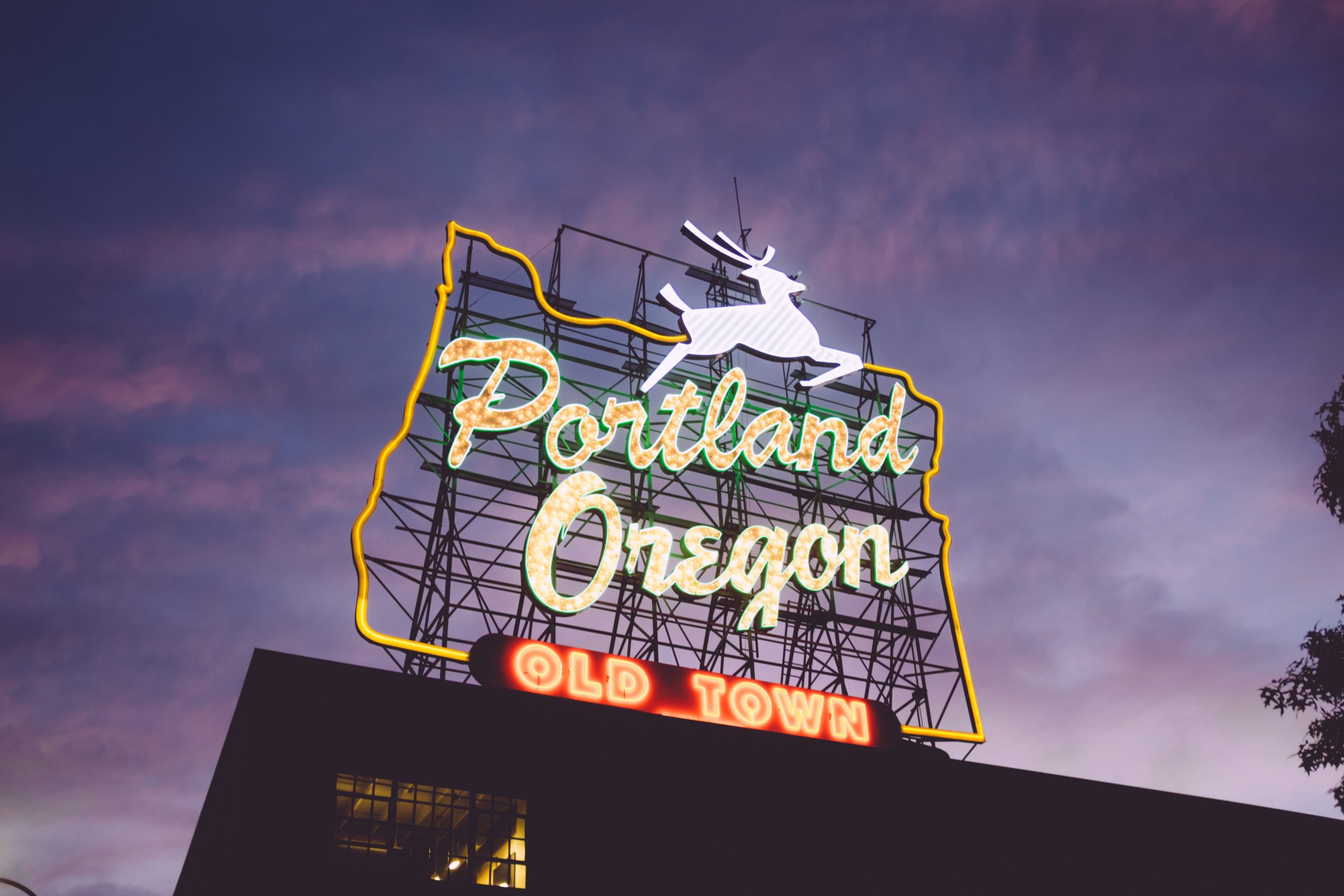
Moving to Portland? Here Are 7 Questions to Ask Yourself
Thinking about moving to Portland, Oregon and buying a home? In order to find the best Portland neighborhood and home for you, I put together this list of questions you’ll want to ask yourself. Considering your personal wants, needs, desires, lifestyle, commute, etc. will all be big factors as you start to narrow down on where you want to live!
If you’re moving to Portland and want to buy a home, here are 7 questions to ask yourself:
Are schools important to you?
If people have kids or are planning to have kids, they always want to know about local schools. “Where are the good schools in Portland? Where are the BEST schools?” The thing is, finding the right or best school for you and your family means something different to everyone. You’ll find lots of helpful info to navigate this in our blog post “How to Find a School in Portland (When You Know School Ratings Are Racist & Classist).”
How important is it to live in a walkable neighborhood?
For some people, it’s super important that they can take a stroll and end up at their favorite coffee shop. Some people want walkable access to food and bars, but maybe they still want to live on a tree-lined street that’s a few blocks away from things. Whether or not a place is “walkable” is going to be a little different for everyone, and in my experience, “walkable” has 2 common definitions: One definition of “walkable” means that you can walk to coffee shops, bars, shops, etc. Another common definition is that there are sidewalks and you can walk your dog. Make sure you define what this means to you!
Where do you work and what does that commute look like?
Do you need your commute to be 10 minutes, or is a 30-minute commute ok for you? Do you want to take public transit, and do you want to take it during COVID-19? Something else to consider is that a house you’re looking at might be on a transit line, but it might involve too many transfers to your workplace to make sense. Another thing to consider is whether you want to ride your bike to work (this is a popular option in Portland). Certain neighborhoods are going to have a ton of hills, and some people hate hills! Looking at a map doesn’t tell you everything, so be sure to take this into consideration.
What is your car situation?
It is absolutely possible to live without a car in Portland. But of course, how reliant you can be on public transit will depend on what neighborhood you live in. Maybe you and your partner have a one car household, and one person uses the car to commute and the other will take public transit. Make sure you think about your lifestyle and how a car factors into that.
What type of house do you want?
Do you prefer early 1900 bungalows? One-level ranches? Modern condos that are practically brand new? The type of home you want to buy will largely determine what Portland neighborhood you will be able to buy a home in. And, Portland’s history and how the city grew has determined what types of houses and architecture you’ll find where.
Portland was originally a lumber town and a big fur trading post in the late 1800s and early 1900s, and because of this, there are some super old houses all around the river. As Portland continued to grow, things spread west and east, then during the 1930s and ‘40s, there were a ton of homes built around the shipyard in neighborhoods like St. John and North Portland.
Also consider whether or not you have the desire to keep up with having an older home. Owning an older home in a very wet climate will take ongoing maintenance—are you ok with constant projects and upkeep? (Homeownership in Portland is like 90% water management!) Or maybe new construction is more your style. Know thyself!
Do you have a pet?
If you have a dog you’ll want a yard, or at least you’ll want to be close to a dog park. Portland is a very dog-friendly city, so you won’t struggle to find things to do with your pup. Check out my blog post “Where To Get Drunk With Your Dog in Portland” for ideas on where to go!
Are you ready for the weather?
I grew up in the area but in my 20s I just couldn’t handle the weather in Portland anymore. It rains a lot and there are many gray days (but we don’t have to worry about snow too often… it snows like maybe once a year on average). Anyway, I moved to Southern California and Mexico for a decade, then I moved back to Portland. It was them that I realized you just need the right gear and you’ll be fine. Get some good waterproof shoes, some cozy sportswear (we have some awesome sportswear brands located in Portland including Columbia), and a natural sunlight lamp and you’ll be good to go.
Partnering with a smart and savvy Portland real estate agent will make all the difference as you decide which neighborhood to live in and what home to buy. I can help you buy a home in Portland—get in touch with me here!
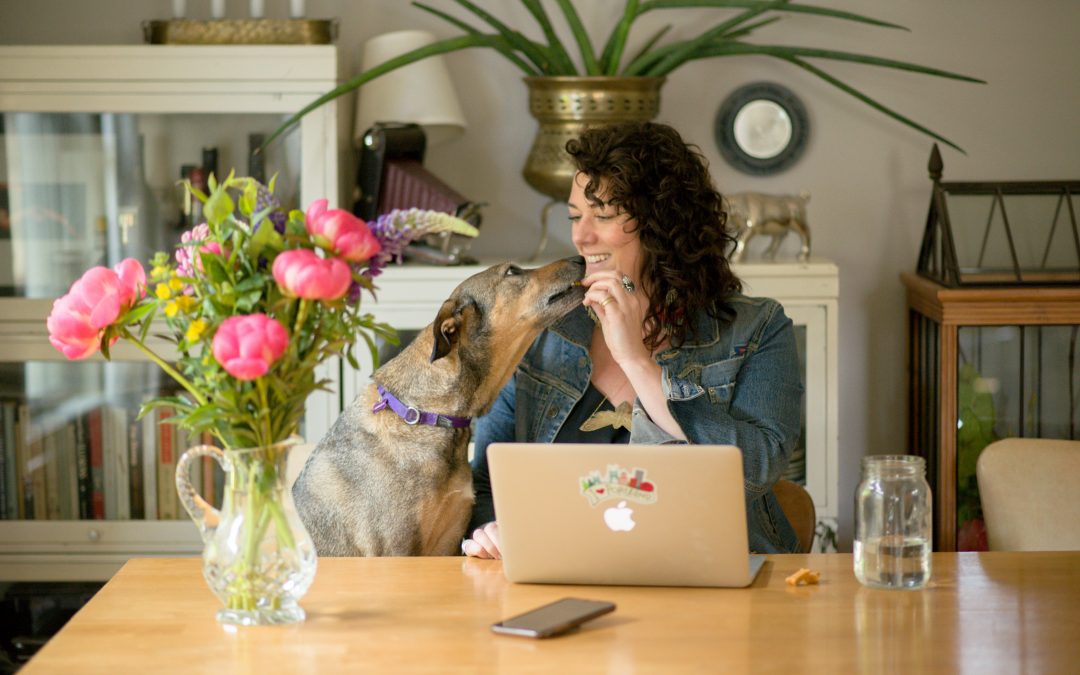
How to Buy a House in Portland When You’re Self Employed
If you’re self-employed and want to buy a house in 2021, you really need to read this before you file your taxes.
Getting a home loan when you’re a self-employed person can be a bit of a tricky combo. And of course, COVID-19 has complicated things even more.
Before we get too far in the weeds in all of this, there are 3 super important takeaways you need to know about right up front:
1. Do NOT make any major purchases right now. Yes, this includes that sexy crushed velvet Joybird sofa that caught your eye. These things can wait until you have the key to your new home.
2. Before you file taxes this year, you really, REALLY need to talk to your lender and/or tax person/accountant. Once you’re done reading this, shoot them an email about your plans. (Seriously. Don’t put this off if you’re serious about buying a home this year.)
3. Typically, advice from seasoned professionals is free. Don’t be afraid to check in with the pros for info on the best course of action, and don’t ever be afraid to seek out a second opinion. (Taking the time to educate yourself now can save you money and heartbreak in the future. It’s worth it.)
***
Now that that’s out of the way, I’m going to walk you through exactly what you need to do if you’re self-employed and want to buy a home this year.
But let me kickstart this with a story.
I was once chatting with a dear friend, and she casually mentioned that she was on the verge of quitting her full-time job and starting a small business. Then she added that she wanted to buy her dream Portland house a few months later.
*record scratch*
I kind of freaked out when I heard this:
“If you quit your job and start a business, you won’t be able to get a home loan as a self-employed professional for a minimum of two years… but because of COVID-19, this is most likely going to be a minimum of five years! If you try to get a mortgage while you’re self-employed, you’d be screwed.”
My friend’s jaw dropped. “Wtf should I do, then?”
“You buy a house in Portland right the fuck now, honey. If you quit your job and strike out on your own right now, you will literally lose your opportunity to be a homeowner this year. Suck it up for a few more months, and let’s find you a home, NOW.”
As you can tell, I have some strong opinions about how to go about being a business owner or an independent contractor and purchasing a house. I work with self-employed people all the time, and as a real estate agent, I’m self-employed myself. It’s the best decision I ever made, and the freedom and creativity that being an entrepreneur allows is unparalleled. That being said, running your own business can have serious drawbacks, and buying a home as a self-employed person is one of them. If you’ve made it this far in reading this you’ve heard a lot of urgency from me, but that’s only because I know how devastating it can be to have to put your dreams on hold for years. But don’t sweat it, you’ve got this!
Here’s what you need to do:
Step 1: Talk to your tax person.
Buying a home while you’re self-employed takes careful planning, foresight, and a smart tax person. You gotta have that taxable income, and a fair amount of it. Let your tax person know that you’re planning on buying a house this year, and they’ll be able to help you figure out what documentation you need, etc.
Aaaand it’s time for another story!
I know of a small business that takes in $200,000/year. However, this most recent year, they wrote off so many expenses that their personal income only shows that they made $12,000 this year. No bank is going to give you a loan if you say you make $12,000/year.
When you’re self-employed on a 1099, you have to make different decisions when you’re buying a house. You need to tell your tax person that you’re planning to buy a house this year, and you might need to not write off as many things this year. Yes, you’ll pay more income tax this way, but you’ll also be more likely to buy a house.
(Now, if you haven’t filed your taxes for a few years or are behind on paying them, that is a whole other can of worms. Believe me, a bank won’t give you a second glance for a home loan if you’ve been lax with your tax.)
Step 2: Talk to a lender to plan well in advance of what you actually plan to buy a home.
You usually need an average of at least two years of taxable income before a lender will even consider giving you a loan to buy a home (and this is why I freaked out on my friend when she was going to quit her job right before she bought her first house).
We all know that those first few years of starting a business can be brutal. And even if you kill it that first year and rake in tons of cash, you still don’t have the two years of self-employed tax history that lenders insist on. You’re right, it doesn’t seem fair, but that’s just the way it is, friends.
And of course, there are additional levels of complications thanks to COVID-19. Here’s what Jen Leon, one of my preferred PDX lenders, has to say about it:
“Every lender at this point in time is looking for a strong profit and loss statement, especially due to COVID. They want to ensure that earnings haven’t taken a backseat comparatively to previous tax returns that are filed. That’s been the biggest hiccup with self-employment – unfortunately every lender is going to use a conservative profit and loss with less income versus a strong tax return from 2019.”
And here’s some wise words from Adesina Cameron, another preferred local lender of mine, who can explain it all better than I can:
“It’s a smart idea for anyone to check in with a lender 2-3 years before they want to buy. But when you’re self employed, it’s critical that you work with a lender to have a plan to qualify for a mortgage. You want your lender and your tax person working together as a team to get you qualified. I often work with CPAs to make sure they understand how I calculate income BEFORE they file. Your CPA can share the draft taxes with your lender to see if letting go of a few deductions is worth it, because the tax savings is minimal, but the increased income is the difference in qualifying or not. During COVID-19, mortgages for the self employed have gotten even tougher. So if you keep sloppy books, or have been procrastinating in doing your 2020 bookkeeping, your lender will give you some encouragement and guidance to get your shit in order before they can pre-approve you.”
Step 3: Don’t write off every single business expense this year.
Your lender is going to be looking at TAXABLE income when they are qualifying you for a loan. The more you write off as expenses, the less your taxable income is. The problem is, when you become your own boss, you’re trying real hard to get every write-off possible in order to lessen your tax liability. As a result, your income will seem very, very low. And when you’re trying to impress your lender with how much you’re earning, you need the opposite to happen. You need your adjusted gross income to be nice and high!
Jen’s got a snippet of sage advice for self-employed folks out there:
“Love my self-employed clients, but I don’t love when they write off every donut purchase at Starbucks.”
Step 4: Pay your taxes.
The only thing guaranteed is death and taxes, right? Well, the taxes part is definitely essential in getting a loan to buy a home. Every single time you get paid, set aside a percentage that you and your tax person have agreed on so when tax time comes around, you’re prepared. This is big Virgo energy, and I promise you, it’s the easiest and least stressful way to go about it.
If you’re behind on your taxes, set up a payment plan with the IRS. Because in a lot of cases, if you’ve jumped through all the other hoops, you can still buy a house if you owe them $$$, just as long as you are currently on a payment plan. (Here’s a cheeky little trade secret for you: That’s how I managed to buy my first home. There are ways, y’all, you just gotta know how to find them, and you gotta plan ahead for them!)
Jen, again:
“The best way to know if you have viable income is to have a lender review your tax returns and assess where income can be bolstered up and used to qualify for a home loan. This is ESPECIALLY critical BEFORE YOU FILE your tax returns to the IRS in a new year! This way, the tax return can be modified and adjusted before the IRS gets it. It may require you to pay more in taxes, but it can also mean homeownership.”
Got questions? Reach out and I’ll talk you through it, and if it’s beyond my expertise as a real estate agent I’ll happily refer you to one of my Portland, OR home loan nerds who can tell you all about getting a mortgage while self-employed.
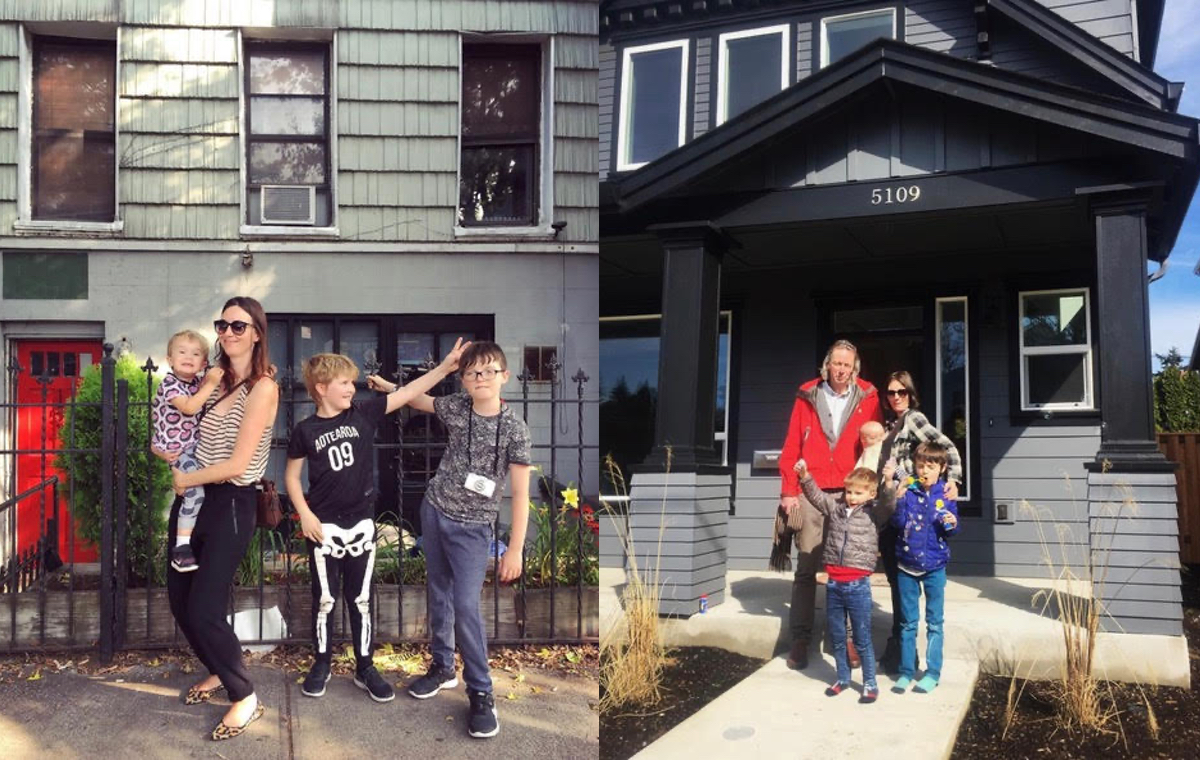
Why We Moved from NYC and Bought a House in Portland, Oregon
First thing’s first: I adore Kate Coats and she is an important person in my life. I feel so SO lucky that I got to meet her and her family AND help them move to Portland!
Since this was a long distance move for Kate and her family, I actually didn’t even meet her in person until she showed up to get the keys to her home from me. This was also literally the first time she had seen her new house in real life! The minute I met her, I forced her to be my friend, and we are! 😉
Anyway, enough about that! Why did Kate and her family decide to move across the entire country from Brooklyn to Portland? I asked Kate all about her family’s big move, from why they decided to move to how their life in Portland compares to life in Brooklyn. A lot of it boils down to affordability, space, and having more outdoor access, but I’ll let Kate explain now!
Q: Why did you move from NYC to Portland? (What made you decide to leave NYC? Why did you choose Portland specifically?)
Kate: We left NYC for a number of reasons. I adore New York but we knew we wanted to buy a house and the options in our price range in Brooklyn were just heartbreaking. I also work remotely and Matt’s work is travel based anyway, so it didn’t make much sense to keep our home-base in such an expensive city. We also wanted more greenery, wilderness and nature available to us, it broke my heart that the kids school playground was just a concrete block and they shared it with three other schools!
I would have loved to have moved to Europe from NY (I’m a Brit) but my husband was keen to give another American state a try first. We gave the Bay Area a shot for a couple of years but it was not for us! I spent time in New Zealand as a kid and have always loved it and when I read that Oregon and NZ had similarities, we figured we would give it a shot. I had not visited Oregon until after our house had closed.

Hanging out recently in the front yard.
Q: What was your living situation in NYC (did you rent, own, etc.)? What is your living situation in Portland?
Kate: We had a house in Greenpoint, Brooklyn. We rented. It’s pretty rare to find a full house for rent in NY but when we returned from California with two kids we knew we couldn’t return to apartment life. Our house was 3 stories with a tiny (TINY) front and back concrete yard space. It had a commercial space on the ground floor which we used as an office and general storage. The house itself was a 2-3 bedroom depending on how you cut it. We loved it! And my youngest was born in the house in a pool in the living room. 🙂
Living expenses are pretty much the same here honestly. Slightly lower, and we’re able to buy into the market which is really the impossible thing in NY. Our rent was around $3,000 a month for the residential space and $1,000 for the commercial. We pay around $3,000 for our mortgage now. We drive more here, school costs, and general life costs are comparable.

Last summer we returned to NY and took this snap out front of our old spot. We painted the door red when we moved in and I’m happy they kept it!
Q: Had you visited Portland before you decided to move here? (If so, how/when did you “know” Portland was for you?)
Kate: Nope! Matt did come out once with our middle kid to meet up with Lauren and take a look at some places. I don’t know that there’s ever a “know it’s for me” moment. I’m still deciding. Haha.

When we arrived at our new house! This is me, my three boys and my dad who helped us move. Matt is driving a truck across the country at this point.
Q: How did you decide which neighborhood in Portland to live in? (Which neighborhood in Portland do you live in, and what do you love about it?)
Kate: Basically we just picked a neighborhood that had a decent school, was walkable, not too far out and we could afford a house in. We didn’t have much knowledge to draw on so we relied heavily on Lauren and we honestly lucked out with our hood, it’s cute and quiet. We like it.

Hanging out recently in the front yard.
Q: How does your current neighborhood compare to the neighborhood you left in NYC?
Kate: Brooklyn is probably one of my favorite places in the world, so it’s hard to compare. But what we have here is just completely different. Here, we have quiet and space and soft comfort. Brooklyn was buzzing, chaotic and creative. I do have to say that I feel Portland struggles far more with homelessness and general street safety, which is surprising to me.
Q: How do you feel about affordability/cost of living in NYC vs. Portland? (Did your lifestyle change when you moved? Could you afford more/feel more comfortable/etc.?)
Kate: Honestly, no. I guess we go out less here because there’s less to go do. Hahah. Which does save money. We certainly could never have afforded to buy a 3-bedroom house with a yard in our old neighborhood. Ever. But in terms of daily living costs, it’s mostly the same.
Thank you so much for sharing all of this great info, Kate!!
Are you ready to pack your bags and leave the big city life for greener (and larger) pastures? Your Local Portland Guide Lauren Goché is ready to help you buy a home in Portland. Get in touch with Lauren here. (She promises not to be a weirdo. Well. Toooo much of a weirdo.).
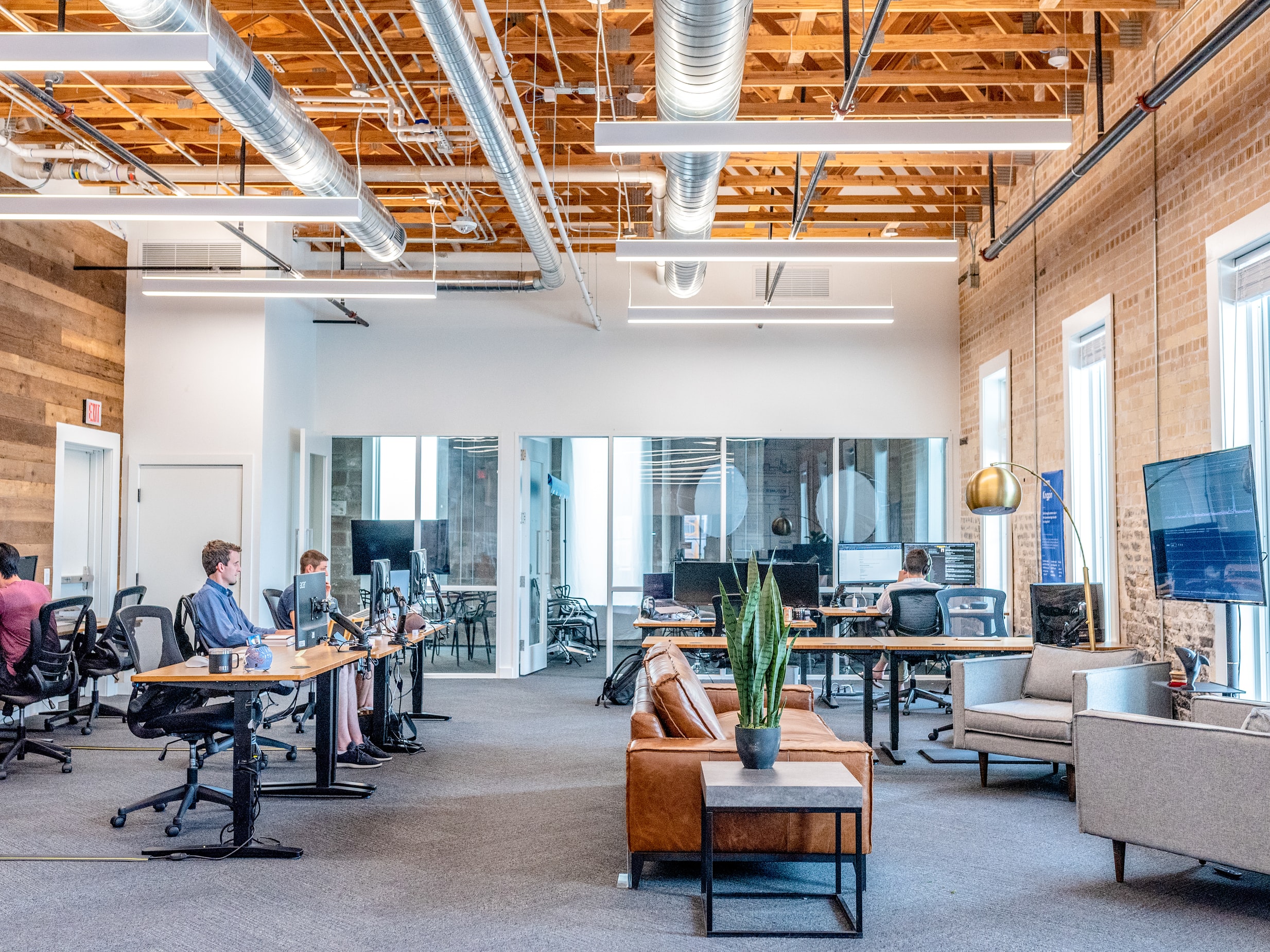
The 5 Best Portland Neighborhoods for Nike Employees
Nike’s headquarters are in Beaverton, which is a city that is 7 miles west of Portland. According to this 2020 list of the biggest companies in Oregon, Nike is at #1 with 73,100 employees. Nike is a BIG deal here. The Portland area (which for our purposes include Beaverton) is also known for being home to many other outdoor clothing and sportswear brands as well, including companies like Adidas. So if you work for any of these companies, you may very well find yourself making the move to Portland!
In my experience, people who work for Nike are very trend-oriented and design-driven. They want to live in the heart of it all, which means they want to live in a hip Portland neighborhood. They also want to live in Beaverton, which is a suburb of Portland and has a much different feel. Beaverton is straight up suburbia, and many people love it in part because they have families and want to live in that type of setting. Beaverton is also home to a Microsoft location, Tektronix, and other worldwide corporations have their HQs here as well.
In this post I’m going to show you the best 5 Portland neighborhoods to live in if you’re a Nike employee. All of the homes featured below are examples of what you can get in each neighborhood for around Portland’s median home price, which at the end of September 2020 was at $451,000.
I’m also going to include commute times from the addresses of the homes we’re featuring to Nike’s World Headquarters using different modes of transportation.
1. St. Johns
We’re going to start this list off with a bit of a curveball. Portland’s St. Johns neighborhood is the only neighborhood in this list that is east of the Willamette River. As of 2019, Portland’s St. John’s neighborhood’s median home price point was at $365,500.
St. Johns Home – Sold for $463,000
Commuting from this St. Johns home to Nike Worldwide Headquarters = 23-minute drive
2. Garden Home
Garden Home is mostly unincorporated Portland, even though it has a Portland address. People like living here in part for tax reasons, and here you’ll find a cool mix of old farmhouses and midcentury homes. (There are also rumors of a Trader Joe’s coming to Garden Home…?! This would be huge.)
Garden Home Residence – Sold for $461,400
Commuting times from this Garden Home residence to Nike Worldwide Headquarters:
- 12-minute drive
- 55-minute bus ride
3. Multnomah Village
Multnomah Village is kind of in between Portland and Beaverton. This cute area has an actual business district which many people find charming, and you can pop in and out of shops, restaurants, stop by the farmers market, visit food carts, coffee shops, and it just has a very good community feel to it.
Multnomah Village Home – Sold for $468,000
Commuting times from this Multnomah Village home to Nike Worldwide Headquarters:
- 14-minute drive
- 66-minute ride on MAX Blue Line
4. Cedar Hills Neighborhood in Beaverton
Ok, so this neighborhood obviously isn’t in Portland, but this is a great neighborhood for Nike employees and it is super close to Nike’s HQ. There are a lot of midcentury homes and ranch homes in Cedar Hills, and there is also the Cedar Hills Crossing mall here which offers lots of great “one stop shopping” but also is surrounded by dining, grocery stores, entertainment, etc.
Cedar Hills Home – Sold for $460,000
Commuting times from this Cedar Hills home to Nike Worldwide Headquarters:
- 5-minute drive
- 17-minute bus ride
5. Pearl District
The Pearl District is right in the middle of Downtown Portland, and this is where you want to live if you’re seeking out that quintessential Portland city vibe. As of 2019, the median home price in Portland’s Pearl District was at $525,000.
Pearl District Home – Sold for $403,000
Commuting times from this Pearl District home to Nike Worldwide Headquarters:
- 16-minute drive
- 49-minute bus ride
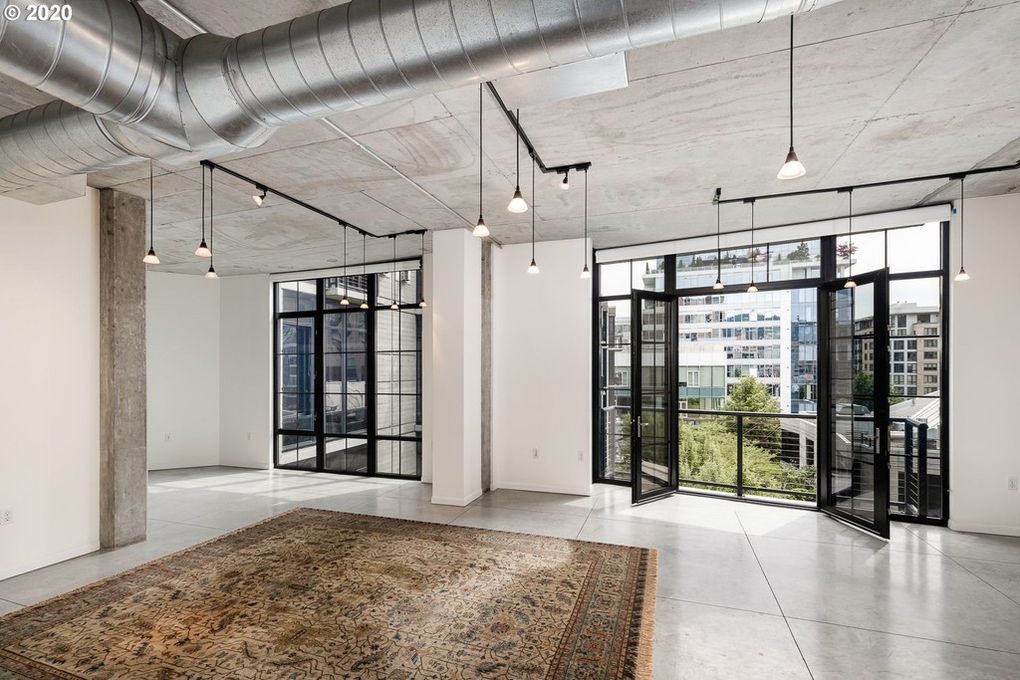
Listed by Mari Connolly with Windermere Realty Trust / SOLD BY Lauren Goché of Think Real Estate
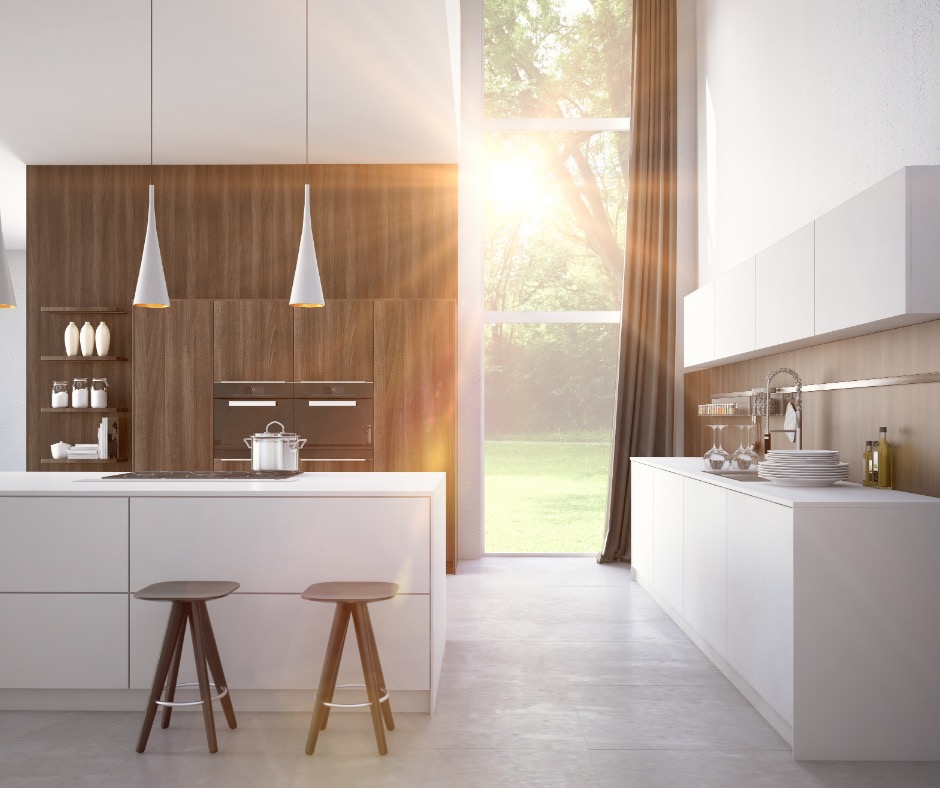
5 Most Expensive Neighborhoods in Portland
As of September 2020, the median home sale price in Portland was at $451,000. In this post, I’m sharing Portland’s 5 most expensive neighborhoods so you know where the fanciest houses are in our Pacific Northwest city!
Keep in mind that determining what the “most expensive” neighborhoods are is somewhat subjective—of course, I used neighborhood median price points to inform these decisions, but Portland has A LOT of neighborhoods so this is certainly not a comprehensive list. (However this is an excellent place to get started!)
As you spend more time exploring Portland’s many neighborhoods with homes at a higher price point, you’ll find that they all have a few things in common. Things like beautiful greenspace, larger lots, and historic homes are all common themes. You’ll also find that if you use any of the conventional school rating websites out there, these expensive neighborhoods will show up as having great Portland schools with high rankings. (However, whether or not a school is “good” is a big hot button issue—click here to read what I think about how to find a school in Portland.)
Also, all of the featured homes in this post were sold in 2020.
1. Hillside
In 2019, the median home sale price in Portland’s Hillside neighborhood was at $800,000. The Hillside neighborhood is very exclusive and offers excellent views, yet it’s just up the hill from rad shops and amazing restaurants on 23rd. The Hillside neighborhood aptly named, and this east-facing neighborhood has the best chance of buying a home with views of Mt. Hood and the Willamette River.
Here is an excellent example of a recently sold home in the Hillside neighborhood:
Hillside Home – Sold for $910,000
2. Eastmoreland
In Portland’s Eastmoreland neighborhood, the 2019 median home sale price was $757,000. Eastmoreland is just an absolutely gorgeous neighborhood filled with greenspace, streets lined with huge trees, big beautiful estates, and historic homes. It’s pretty close to Reed College and there aren’t many straight streets in the neighborhood, so streets just kind of meander along here. Eastmoreland is the epitome of picturesque Portland beauty!
Here is an excellent example of a recently sold home in the Eastmoreland neighborhood:
Eastmoreland Home – Sold for $1,095,000
3. Arlington Heights
In Portland’s Arlington Heights neighborhood, the 2019 median home sale price was $757,000. Arlington Heights is literally surrounded by greenspace (not exaggerating here… look at the neighborhood on a map!), and this east-facing neighborhood is a truly stunning place to live. Here you’ll find the renowned Portland Japanese Garden, Washington Park, miles of scenic trails and more. You can feel like you’re lost in nature and removed, yet you’re still in the middle of the city and just up the road from all of the great amenities on 23rd.
Here is an excellent example of a recently sold home in the Arlington Heights neighborhood:
Arlington Heights Home – Sold for $1,050,000
4. Alameda
In 2019, the median home sale price in Portland’s Alameda neighborhood was at $744,250. This neighborhood is up on Alameda Ridge and this west-facing community is ALL about the views! Searching for a home to buy in Alameda will give you a better chance of getting a great view, including views of Downtown Portland and the Willamette River. Alameda is also super close to the Beaumont-Wilshire business district, giving you great access to shops, restaurants, coffee shops and more. (Pip’s Original Doughnuts & Chai is my fave spot here.)
This recently sold home represents quintessential Alameda; Tudor homes are what Alameda is all about!
Alameda Home – Sold for $1,275,000
5. Laurelhurst
In Portland’s Laurelhurst neighborhood, the 2019 median home sale price was $725,500. Laurelhurst is in the middle of everything giving you an easy commute to things, yet you’re surrounded by picturesque greenery. Huge leafy trees, lots of historic homes, quick access to Laurelhurst Park, and tons of amazing restaurants are all part of Laurelhurst. Also, if you’re searching for a Colonial or Craftsman home, Laurelhurst is the neighborhood for you.
Here is an excellent example of a recently sold home in the Laurelhurst neighborhood:
Laurelhurst Home – Sold for $1,544,000
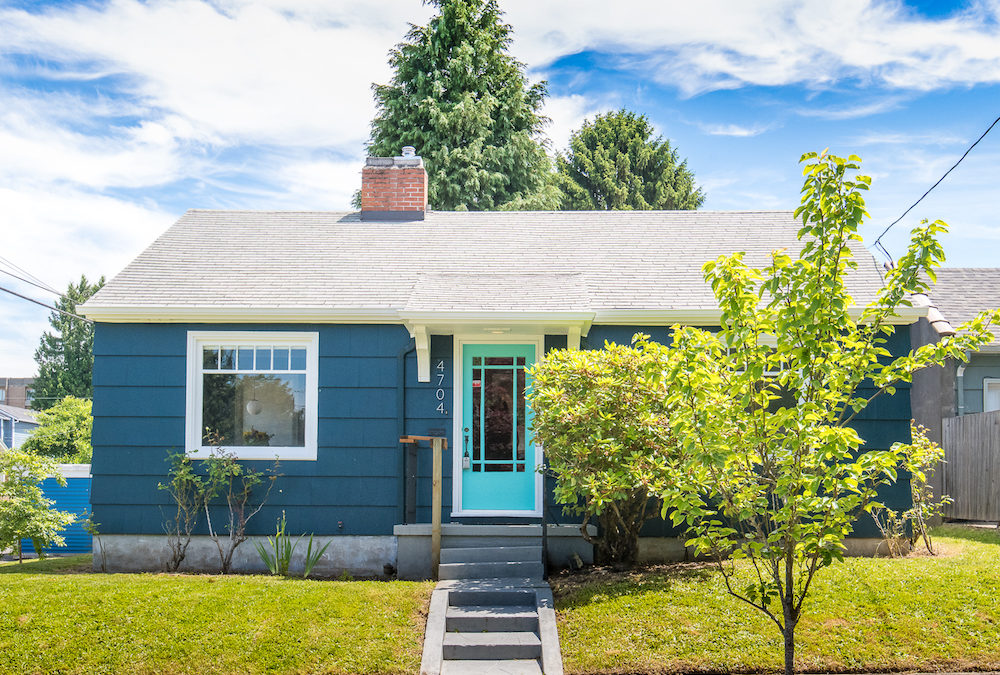
The 5 Most Affordable Neighborhoods in Portland, Oregon
First thing’s first: As of September 2020, Portland’s median home sale price was at $451,000. In this post, I’ll be sharing the most affordable neighborhoods in Portland and where you can get a “deal” as well as examples of homes that sold in 2020.
Keep in mind that a “deal” means something different to everyone, but for the purposes of this post we’re featuring neighborhoods with median home sale prices that are below Portland’s overall median price.
(Also! This is by no means a comprehensive list, but this is a fantastic place to get started!)
1. Hazelwood
In 2019, the median home sale price in Portland’s Hazelwood neighborhood was at $320,000. The Hazelwood neighborhood is home to lots of lovely one-level ranch-style homes, and one of this neighborhood’s big highlights is the easy access to Glendoveer Golf Course. You don’t even have to play golf to enjoy this local amenity—there is a beautiful path around the course that’s perfect for staying active and getting in your steps for the day.
The Hazelwood neighborhood also offers excellent access to Interstate-84 and Interstate-205, and the Light Rail’s MAX Blue Line runs right through the neighborhood.
Here are a couple of great examples of recently sold homes in the Hazelwood neighborhood:
Hazelwood Home – Sold for $325,000
Hazelwood Home – Sold for $315,000
2. Powellhurst-Gilbert
In 2019, the median home sale price in Portland’s Powellhurst-Gilbert neighborhood was at $300,000. In the Powellhurst-Gilbert neighborhood you’ll find one-level ranches with garages, big yards, and there’s just lots of greenspace around in general! You’re also at the foot of Powell Butte, which has some seriously rad hikes and awesome views.
Here are a couple of great examples of recently sold homes in the Powellhurst-Gilbert neighborhood:
Powellhurst-Gilbert Home – Sold for $330,000
Powellhurst-Gilbert Home – Sold for $309,000
3. Sumner
In Portland’s Sumner neighborhood, the 2019 median home sale price was $307,100. This neighborhood offers many great starter houses that are perfect for first-time homeowners. Homes in Sumner are on the smaller side, but most have decent sized yards with nice outdoor spaces. You also have a quick commute to the airport from the Sumner neighborhood, which is a big perk for those who have to fly a lot for work.
Sumner Home – Sold for $375,000
This home was listed for $319,000 and sold for $375,000 (17% above list price) in only 3 days. This home represents a good example of the realities of our current real estate market here in Portland.
Sumner Home – Sold for $345,000
4. Centennial
In Portland’s Centennial neighborhood, the 2019 median home sale price was $307,000. Centennial is also home to many awesome ranch houses, and it’s right at the base of Powell Butte giving you easy access to beautiful greenspace, hikes, and big views.
Centennial is also on Light Rail’s MAX Blue Line which runs from Gresham all the way to Hillsboro, taking you through Downtown Portland and Beaverton. This makes the Centennial neighborhood an especially great option for those who need to commute for work.
Here are a couple of great examples of recently sold homes in the Centennial neighborhood:
Centennial Home – Sold for $309,250
Centennial Home – Sold for $315,000
5. Mill Park
In Portland’s Mill Park neighborhood, the 2019 median home sale price was $308,500. In Mill Park you’ll find lots of one-level homes and just a bunch of solid ranch homes. Mill Park is filled with cute residential streets and because the streets curve their way through the neighborhood, it’s a fairly “slow” neighborhood as well. However, there is still easy access to local freeways, and you’re close to both Interstate-205 and I-84.
Here are a couple of great examples of recently sold homes in the Mill Park neighborhood:
Mill Park Home – Sold for $331,000
Mill Park Home – Sold for $345,500

Who + What to Follow Online When You Move to Portland
Being new in town can feel a little disorienting at first—you have all kinds of things to figure out… like your new favorite bar, where to work on your laptop, and where the heck you can get brunch without having to wait forever. You know, the important things.
But figuring out who to follow online is a big step, too. Getting plugged into PDX’s online scene is the perfect way to start your move to Portland—you can start following Portlanders before you even officially move here and start to learn the lingo and happenings around town! Here are a few people/accounts to follow on Facebook, Instagram, and Twitter:
Hidden Portland for the Curious
This public Facebook group is kind of a catch-all for “all things Portland,” and it’s generally a very positive “feel good” space where people mainly share photos of cool art, buildings, scenes, etc. around Portland.
Partners in Diversity
This nonprofit “works with companies to help recruit and retain professionals of color in the Portland and Southwest Washington region,” and not only do they keep an up-to-date job board, but they also provide educational opportunities for all types of professionals in the Portland area.
Follow along on Facebook to get to know this organization better (and figure out if you or your employer might be able to benefit from its services), and earn even more on their website here.
Oregon Humanities
This incredible organization covers a wide breadth of topics and offers all kinds of events and programs; their main mission is to “to bring people together across difference.” Follow Oregon Humanities on Facebook for notifications about new events, links to latest articles on the website, and all of their new creations which range from essays and audio recordings to photographs and films. They also put a special emphasis on exploring “the thoughts, perspectives, and experiences of Oregonians, especially those who have been ignored, generalized, or oppressed.”
Hit the “like” button, but also check out the website to learn even more. (You might even find yourself wanting to contribute an article or something else!)
View this post on Instagram
Bridgeliner
This one is *super* popular with Portlanders, and it’s a mix of Portland news, events, and other lighthearted content. Their main gig is their newsletter that they send out every morning, and this is a newsletter that you’ll actually *want* to receive. “We’ll always be on the lookout for ways to connect you with your city and your community.” Love ya, Bridgeliner!
But I digress—follow these guys on Instagram. You’ll find an inside look at Portland culture there with lots of great pics and cute illustrations. They also have an active Facebook page.
Hobbstheartist
Meet Hobbs, self-described “Dope Teen” plus artist and dancer. Hobbs the Artist is a sort of Renaissance guy—he has an urban lifestyle line called City Troll, he’s a student at Steps PDX Dance Academy, he’s a visual artist, a musician… and more. You can learn more about Hobbs here, but follow him on Instagram to follow along with his artistic adventures.
View this post on Instagram
Sweetheartstjohns
This Instagram account is brimming with pretty pictures and creations from Anna Henricks. Anna owns and operates Sweetheart Bakery, and her Instagram is filled with gorgeous cakes decorated with stunning floral arrangements.
View this post on Instagram
Makegoodchoices
Alex Simon is the lady behind this rad Insta + Etsy shop, and in her bio she describes herself as a “ceramic artist, sparkle queen, jewnicorn, queer femme, and rhinestoner.” Heck yes! This artsy Portlander’s feed is filled with her fabulous creations, behind-the-scenes pics, her doggy and more!
View this post on Instagram
Che.che.luna
This NSFW (well, depends where you work) account is the Insta home of Che Che Luna, host of “sensual dance workshops for your sexual liberation,” and they also offer 1:1 pleasure coaching and holistic sex ed courses. Get inspired and check it out!
View this post on Instagram
Stripper Writer
Elle Stanger is a “certified sex educator-writer-parent-sworker” (also also a Portlander) and one of the hosts of Strange Bedfellows, a podcast about “Sex. Politics. Friends.” Follow @stripperwritter for sex positivity and a behind-the-scenes look at Elle Stanger’s life and career.
@Alex_zee
Alex Zielinski is a news editor at Portland Mercury (hey, while you’re at it, follow Portland Mercy on Facebook, Twitter, and/or Instagram), and you’ll find her reporting most frequently on housing, cops, civil rights, and city hall. Twitter’s not everyone’s cup of tea, but it can be a great way to communicate more directly with reporters, local politicians/community leaders, etc.
Keep reading about awesome Portland things right here on our blog.

